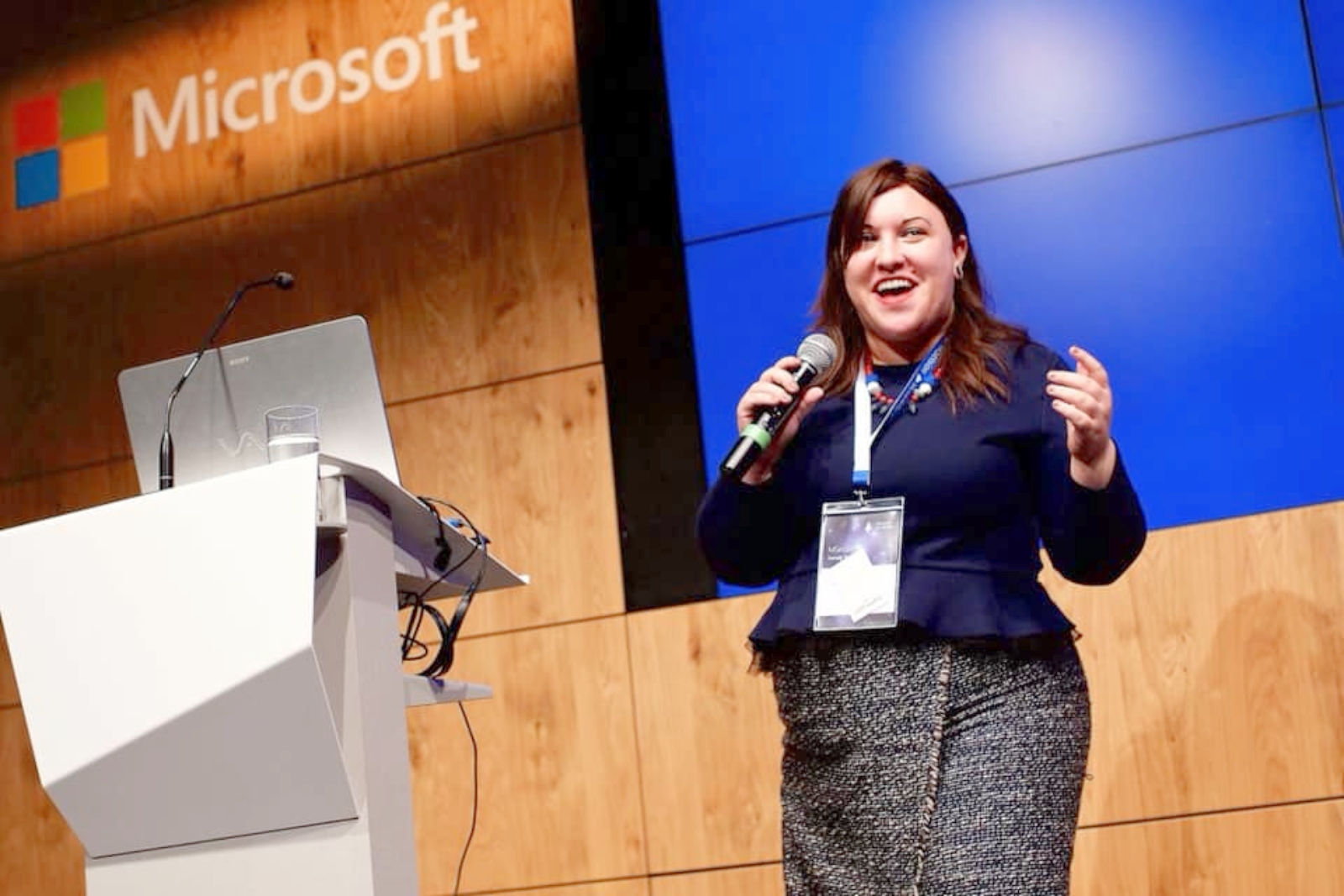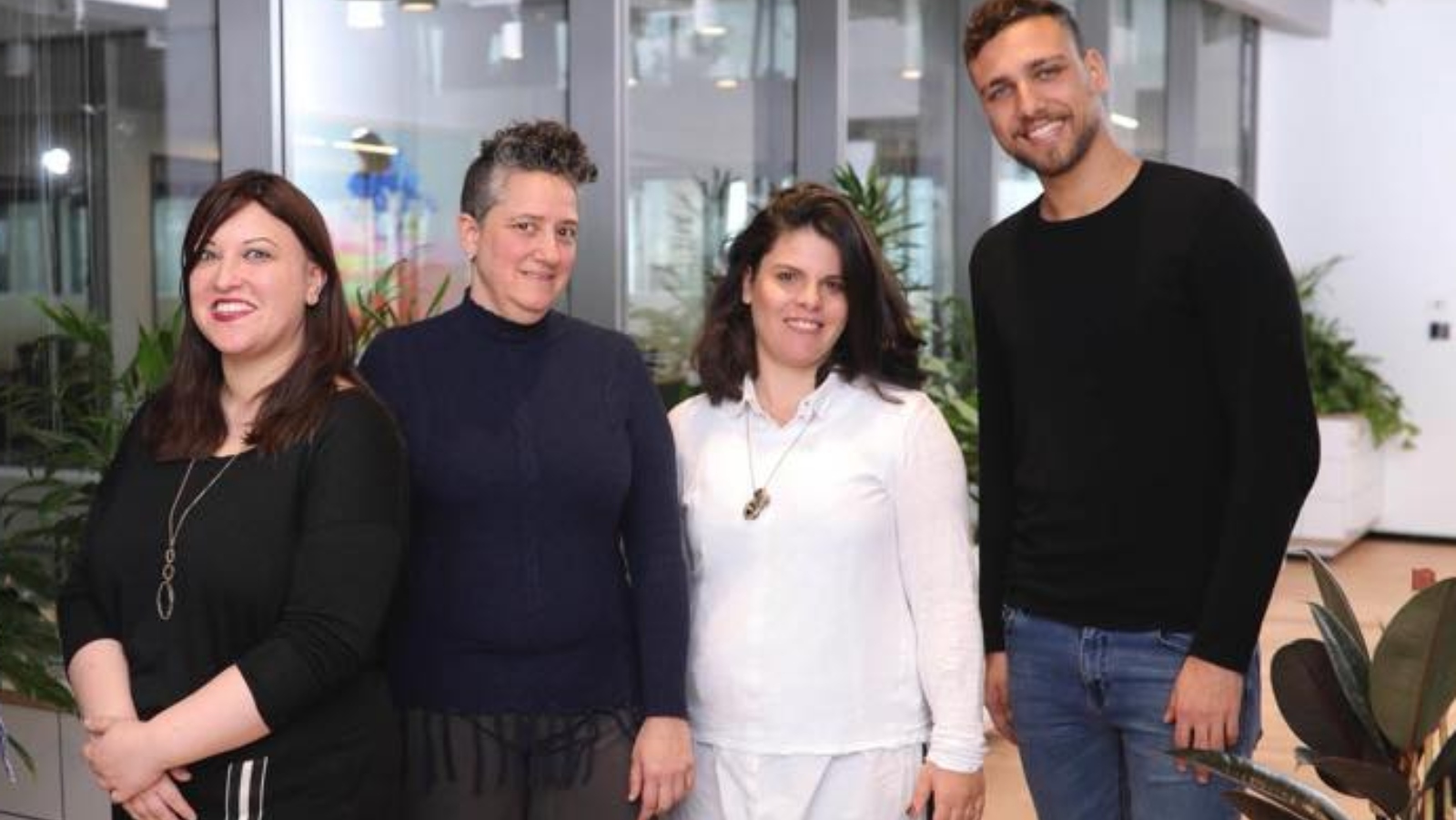What is the best remedy for high turnover in the millennial workforce? Is it spending $80 million on free food for employees, like Google did in 2018?
Chedva Kleinhandler believes that what restless employees are really seeking is more opportunities for personal and professional growth.
Her four-year-old Tel Aviv-based startup, Emerj, offers companies with at least 1,000 employees an internal, white-label platform (meaning the company brands it as its own) on which workers can tap into the knowledge, skills and experience of coworkers.
Its motto: “Let your people grow.”
“There are skills and knowledge already inside the company but it’s almost impossible to map, leverage and tap into when there is a specific need,” Kleinhandler tells ISRAEL21c, citing a statistic that typical employees spend 25 percent of their work time seeking information to do their job.
“Let’s say you’re new to the company, and your coworkers are spread across several countries. You’re good at what you were hired to do but you don’t have a lot of information about how it has been done inside your company,” she explains.
Using Emerj’s machine learning-based platform, you can discreetly enter any question or discussion topic.
How did another employee accomplish a project like the one you’ve been assigned? What should you know about the company culture? What’s the best way of inquiring about promotion opportunities? How do other working parents cope with the work-life balance – or as Kleinhandler prefers to call it, work-life integration?

“Nobody will see what you type. Privacy is our priority,” says Kleinhandler. “Our algorithm analyzes the question together with the data you’ve input about yourself and finds you the most relevant people in the company who have the knowledge you are seeking and have volunteered to share it through shadowing or one-on-one micro-mentoring.”
For example, an experienced salesperson may agree to have a new member of the sales team hop on a call to hear how she interacts with clients. “We create ‘bite-sized’ connections, a gateway to knowledge sharing,” says Kleinhandler.
Knowledge flows in both directions
Using different filters, the questioner can connect to three or more coworkers regarding the same issue – maybe one person in the same office and one at a distant branch.
“Around 40 percent of our users also volunteer to share their knowledge,” says Kleinhandler.
She says that about 50 clients are “in the sales pipeline,” mostly headquartered in the United States.
Companies use Emerj’s platform to fight attrition by enabling employees to find in house assistance anonymously.
In return, the company receives data on the number of users and mentors (but never personal information), how many questions have translated into sessions, and user satisfaction rates.
“They also see the top topics, the most burning issues, in an aggregated anonymous way, so they can learn the gaps they might need to address,” says Kleinhandler.
“Turnover is a problem and organizations understand they need to keep employees motivated and engaged.”
An unlikely partnership

Although Emerj works with Fortune 500 companies – Kleinhandler is not at liberty to name them – this graduate of the Fusion Labs accelerator has a staff of three women and two men in the new WeWork ToHa location in Tel Aviv and one employee in New York.
A recent infusion of $800,000 from private investors in the US, Canada and Israel will help the company’s expansion.
Kleinhandler, 32, doesn’t come from a typical Israeli entrepreneur background. She grew up in Hasidic neighborhoods in Brooklyn and in the Tel Aviv suburb of Bnei Brak, where she currently lives with her husband and their 13-year-old son.
After high school, she earned a diploma as a translator/editor and worked in that profession for a while. Among her other accomplishments, she wrote a design blog, “Rooms & Words,” for five years and was Tel Aviv chapter head of SheWorx.
Kleinhandler met her Emerj cofounder, CTO Hannit Cohen, in a “mommy group” on Facebook. They became close friends despite Klein being ultra-Orthodox and Cohen staunchly secular. Cohen came into the partnership with a decade of experience in web development.
“Statistically I’m an anomaly in Bnei Brak although there are more and more Haredi [ultra-Orthodox] entrepreneurs. But I’ve never gotten anything other than support from my family and community,” says Kleinhandler, who has been featured in the Israeli magazine Lady Globes and recently started a podcast series on women in leadership.
Her theory on “work-life integration,” as mentioned above, has a lot to do with the concept behind Emerj.
“Studies show that 59% of millennials value opportunity for professional growth over better salary and benefits. It’s similar for Gen Z, which is entering the workforce,” says Kleinhandler, noting that millennials already make up nearly half the US workforce.
“People want to have more purpose in their work. If your job is really meaningful to you, it’s part of your life and you can find ways to integrate it.”
For more information, click here













